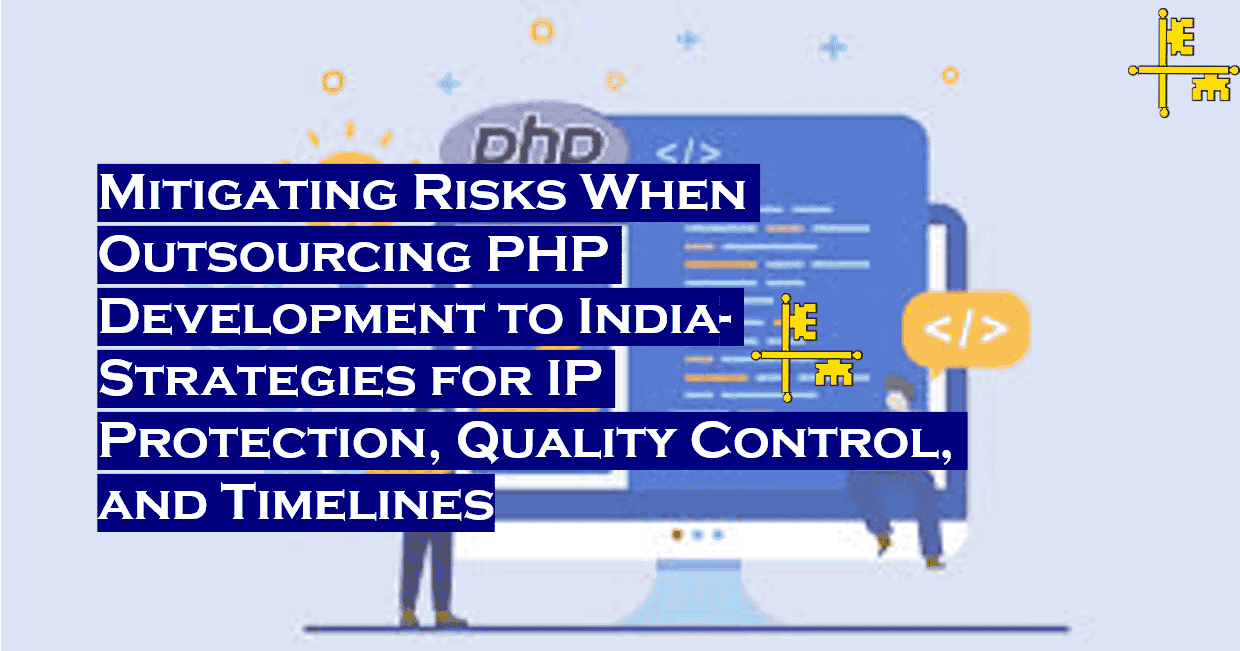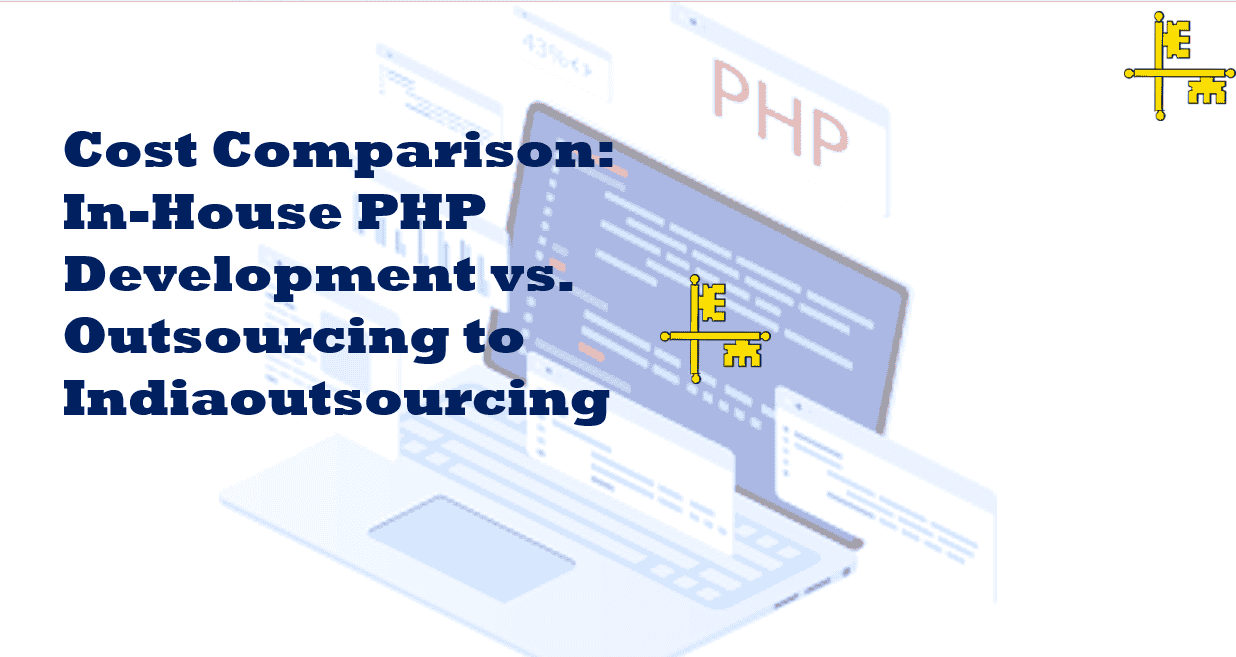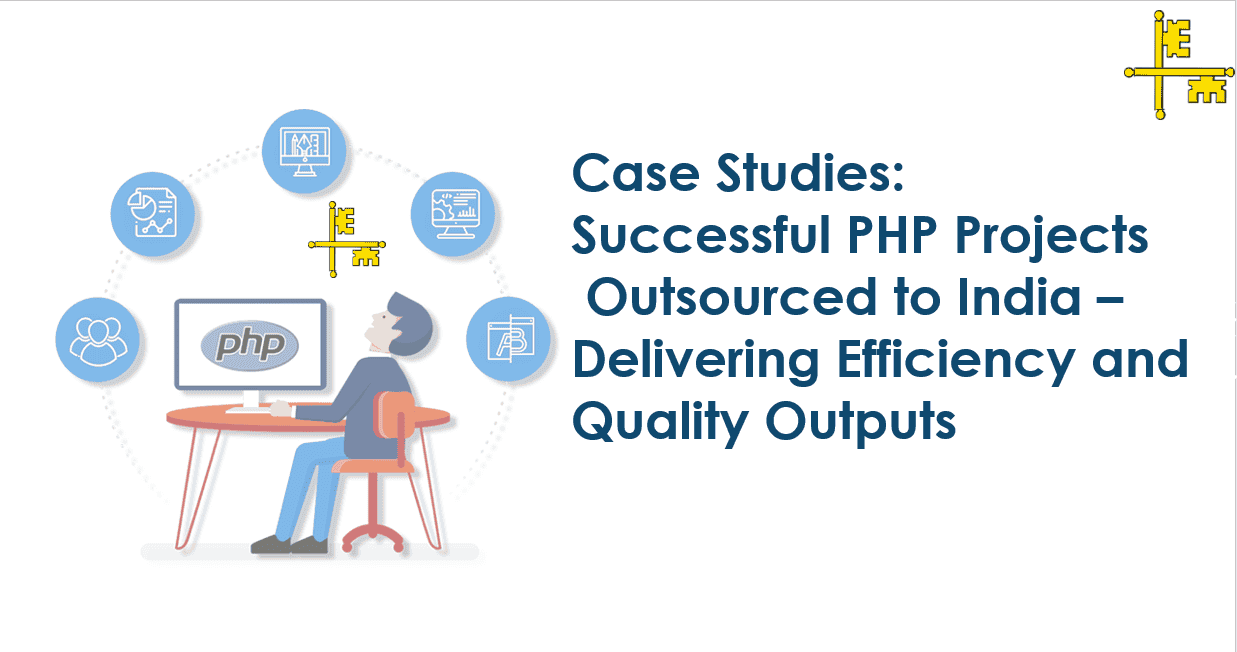Mitigating Risks When Outsourcing PHP Development to India- Strategies for IP Protection, Quality Control, and Timelines

Mitigating Risks When Outsourcing PHP Development to India: Strategies for IP Protection, Quality Control, and Timelines
Outsourcing PHP development to India has become a popular choice for businesses looking to reduce costs while gaining access to a skilled talent pool. India, with its large and diverse IT sector, offers many advantages, such as cost-effectiveness, a broad range of expertise, and the ability to scale projects quickly. However, outsourcing to a foreign country presents certain risks that must be managed to ensure a smooth and successful project. These risks often relate to intellectual property (IP) protection, quality control, and adherence to timelines. By employing the right strategies, businesses can mitigate these risks and achieve successful outcomes when outsourcing PHP development to India.
Table of Contents
1. Intellectual Property Protection
One of the primary concerns when outsourcing PHP development to India is the protection of intellectual property (IP). As businesses share their source code, designs, and proprietary information with external developers, there is a potential for unauthorized use, theft, or leakage of sensitive data.
Strategies for IP Protection:
-
Non-Disclosure Agreements (NDAs): Before beginning any work, ensure that a legally binding non-disclosure agreement is signed between your business and the outsourcing vendor. This document should clearly outline the confidentiality of all proprietary information, including source code, project details, and business strategies. NDAs are essential for legally protecting your intellectual property in case of any future disputes.
-
Clear Ownership Clauses: In addition to NDAs, contracts should specify the ownership rights of the IP developed during the project. Clearly state that all code, designs, and other deliverables produced during the outsourcing engagement will belong exclusively to your business, not the outsourcing vendor. This will prevent any potential disputes over ownership after the project is completed.
-
Secure Communication Channels: Use secure communication platforms (such as encrypted emails, VPNs, and project management tools) when sharing sensitive information with your Indian outsourcing team. This helps to reduce the risks of data leakage or unauthorized access.
-
Periodic Audits and Monitoring: Implement regular audits and monitoring of your project’s progress. By ensuring that the development team is following the agreed-upon protocols for IP protection, businesses can detect any potential issues early in the development process.
2. Quality Control
Ensuring high-quality PHP development is another challenge when outsourcing to India. While India is home to many highly skilled developers, the quality of work can vary depending on the outsourcing partner’s expertise, experience, and adherence to best practices.
Strategies for Ensuring Quality Control:
-
Choose a Reputable Outsourcing Partner: It’s essential to conduct thorough due diligence when selecting an outsourcing vendor. Look for companies with a proven track record in PHP development and positive client testimonials. Verify their credentials, including certifications and the experience of their development team.
-
Establish Clear Requirements and Expectations: Clearly define your project’s goals, features, and functionality from the outset. Having a detailed project scope document, including design specifications, technical requirements, and deliverable timelines, can help ensure that the outsourcing team understands your expectations. This document serves as a guideline for the project, reducing the risk of miscommunication and errors.
-
Implement Code Reviews and Testing: Implement regular code reviews and quality assurance testing during the development process. Make use of industry-standard tools for testing and ensure that your outsourcing partner follows the best practices for code quality, security, and performance. This will help identify issues early in the project and ensure that the final product meets your standards.
-
Set Up Regular Check-ins and Feedback Loops: Regular communication with the development team is key to ensuring that the project is progressing smoothly and according to your quality standards. Set up weekly or bi-weekly check-ins to review the progress, provide feedback, and discuss any challenges the team might be facing. Continuous feedback helps improve the quality of the project and reduces the chances of misunderstandings or errors.
3. Adherence to Timelines
Meeting project deadlines is a significant concern when outsourcing development to a different country. Time zone differences, communication barriers, and the complexity of managing remote teams can sometimes lead to delays, which can be costly for businesses.
Strategies for Managing Timelines:
-
Set Realistic Deadlines: Ensure that your project timelines are realistic and account for potential delays due to time zone differences, holidays, or unforeseen issues. Setting overly ambitious deadlines can put unnecessary pressure on the development team and result in compromised quality.
-
Create a Detailed Project Plan: Develop a detailed project timeline that outlines key milestones, deliverables, and deadlines. Include buffer time to account for unexpected issues. Share this timeline with the outsourcing team and ensure they are committed to meeting these deadlines.
-
Use Agile Methodology: Agile development methodologies, such as Scrum, can help keep the project on track and allow for regular updates and iterations. This flexible approach allows the development team to deliver incremental updates, making it easier to adjust timelines if necessary. Agile also ensures that any issues are identified and addressed quickly, minimizing the risk of delays.
-
Maintain Clear Communication: Communication is crucial when managing remote teams. Set up regular communication channels and establish clear lines of communication with your outsourcing partner. Ensure that you are in regular contact, either through video calls, emails, or project management tools. This ensures that any issues affecting timelines are addressed quickly.
-
Track Progress with Project Management Tools: Utilize project management tools like Jira, Trello, or Asana to track the progress of the project in real-time. These tools allow both you and your outsourcing partner to monitor tasks, identify bottlenecks, and keep the project on track. They also provide transparency and accountability, which helps ensure that deadlines are met.
Conclusion
Outsourcing PHP development to India offers many benefits, but it is not without its risks. By implementing strategies for intellectual property protection, quality control, and managing timelines, businesses can significantly reduce the potential for issues and ensure a successful outsourcing experience. Choosing a reputable vendor, setting clear expectations, using secure communication channels, and maintaining regular check-ins will help you effectively mitigate risks and achieve your business goals while working with offshore PHP developers in India.
Related Products
Here are some key data points related to outsourcing PHP development to India, IP protection, quality control, and timelines:
1. Global Outsourcing Market Growth:
- The global outsourcing market is expected to reach $405.6 billion by 2027, growing at a compound annual growth rate (CAGR) of 8.3% from 2020 to 2027 (source: Grand View Research).
- India remains a dominant player in the IT outsourcing market, with the Indian IT services industry valued at $194 billion in 2021, and it is projected to grow at a rate of 7.7% annually (source: NASSCOM).
2. Cost-Effectiveness of Outsourcing to India:
- Businesses can save up to 60-70% on operational costs by outsourcing to India compared to hiring in-house developers in Western countries (source: IBEF India).
- A 2018 report by Deloitte revealed that 59% of businesses cited cost reduction as the primary reason for outsourcing, making it one of the most attractive benefits of outsourcing to India.
3. Intellectual Property Protection:
- According to a 2020 report by PwC, 33% of companies reported concerns about intellectual property theft and data security as a significant risk when outsourcing.
- In India, the legal framework for intellectual property is robust, with the country being a member of the World Intellectual Property Organization (WIPO). However, a 2018 study by the U.S. Chamber of Commerce ranked India as 24th globally in IP protection, indicating a potential risk in IP security when outsourcing.
4. Quality Control in Outsourcing:
- 64% of outsourcing relationships fail due to poor quality, poor communication, or unmet expectations (source: Harvard Business Review).
- A survey conducted by Gartner in 2020 found that 30% of organizations cited a lack of quality control and assurance practices as one of the primary challenges in offshore outsourcing projects.
5. Adherence to Timelines:
- Project delays are a common problem in outsourcing, with over 40% of outsourced projects experiencing significant delays (source: CIO Review).
- A 2017 study by Tata Consultancy Services (TCS) found that 56% of businesses reported issues with meeting timelines when outsourcing, with communication and cultural differences being among the top reasons for delays.
6. Outsourcing Development to India:
- India accounts for 55% of the global IT outsourcing market and continues to be the top destination for software development outsourcing, including PHP and web development (source: NASSCOM).
- According to Statista, India’s IT and business process outsourcing (BPO) sector employs over 4 million people, contributing to the country’s position as a leader in the global IT outsourcing industry.
By incorporating these facts and statistics, the article provides a more data-driven and authoritative perspective on outsourcing PHP development to India and addresses key concerns such as IP protection, quality control, and adherence to timelines.







